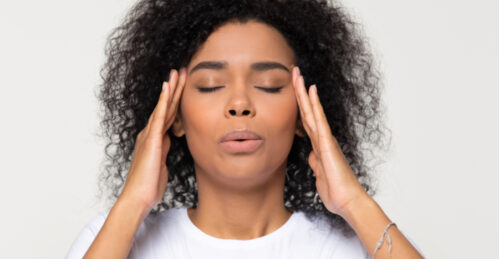Other Causes of Dizziness

Orthostasis – Temporary fluctuations in blood pressure are a very common cause of dizziness. This is usually seen when a patient will report dizziness only when standing up from a sitting position (or sitting up from a lying down position). When the brain gets inadequate blood flow you can very easily feel dizziness or lightheadedness. A temporary drop in blood flow is commonly seen when standing up and can be more dramatic in the elderly, those on medications, or when dehydrated.
Medication Effect – Many medications can cause dizziness or lightheadedness often by either lowering the blood pressure but also by a direct effect on the brain and the brain’s responsiveness. Often medications used to treat pain, blood pressure, or neurologic conditions will cause dizziness, especially early on until you adapt to the changes.
Vestibular Migraine or Migrainous Vertigo – Vestibular migraine probably deserves its own section on our site! Briefly, vestibular migraine is a subtype of migraine headache that primarily has dizziness as the symptom. Usually there is no headache, the the dizzy spells can be moderate in severity lasting hours or days.
Peripheral Neuropathy – The entire nervous system has to work together to keep us feeling on balance. If diabetes or other conditions have caused weakness in the nerves of the back, legs, or feet then we can often get off balance because our brain is receiving slow or incomplete sensory input about our own body’s position. It is very hard to even walk when you can’t feel your own feet!
Deconditioning – Chronic inactivity – such as that caused by a serious injury, aging, or dementia – will cause dizziness as well. For most forms of imbalance some type of exercise or activity program is recommended. When we are not getting enough physical activity our brain’s balance centers get out of practice with integrating all of the body’s input and coordinating all of the necessary muscular activity for precise balance. Likewise our muscles also become weak. Severe deconditioning is one of the most common causes of dizziness and imbalance seen in nursing homes and rehab facilities caring for sick patients.
Meniere’s Syndrome or Meniere’s Disease – Meniere’s disease is a complex disease of inner ear swelling leading to various inner ear symptoms including severe spells of vertigo usually lasting hours or days. Treatments and preventative therapies are available. A good evaluation will often include an audiogram, MRI of the inner ear and form balance testing.
